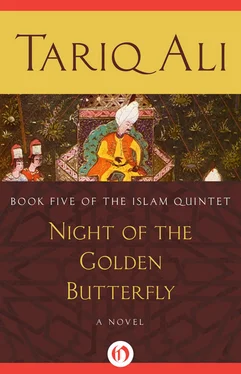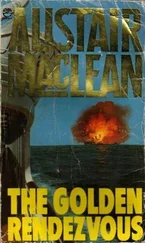The same could not be said of Plato. Life had overeducated him and the marks of its lessons were plain to see. He was light-skinned and thick-lipped, with hollow cheeks that gave him an ageless look, and this attractive ugliness was enhanced by thick black hair that he rarely bothered to groom. His Brylcreemed appearance at Hamlet had been unusual.
One day he told us how he had escaped from the 1947 pogroms in East Punjab and fled to Lahore. He was in his last year of school when news reached Ludhiana that all of the two hundred or so Muslims in his village, including his parents and three younger sisters, as well as aunts and uncles and cousins, had all been taken to the local mosque and set on fire. There wasn’t a single survivor. A kindly Sikh maths teacher who had befriended Plato hugged him and wept. The same man took him to the centre of town where a convoy of buses was being readied to ferry Muslims across to the other side of the partitioned subcontinent. Plato was dazed, unable to register the fact that he had lost everyone. He was put on a bus that contained mainly women and children; his old teacher explained the circumstances and pleaded with a woman to look after his pupil. She did.
‘The two buses in front of us were stopped by Sikhs and I saw the men lined up and killed in the most brutal fashion. Some of them were on their knees pleading for mercy, kissing the feet of those about to massacre them. I thought they would kill us too, saving the women to be raped and slaughtered afterwards. But they were interrupted by a military patrol led by British officers. That in itself was rare, but that’s how we survived.’
He spoke matter-of-factly, with few traces of outward emotion, but the pain was reflected in his eyes. He went on, ‘Then I reached this great city, the Paris of the East, which Punjabis everywhere used to dream of visiting. He who has not seen Lahore has not seen the world and all that sentimental nonsense. And here Muslims were hard at work killing Sikhs and Hindus and looting their property. I was in a refugee camp, and one of my uniformed protectors, after discovering I had no silver or gold or any money on me, wanted some kind of reward and decided to rape me. I was saved by other refugees, who heard my screams and, Allah be praised, dragged the Muslim policeman off my back. My family had been religious. I was taken regularly to the mosque, learned the Koran by rote without understanding a single word, and participated in all the rituals. When I saw what was being done by all sides in the name of religion I turned my back on religion forever.’
The table had fallen silent. Respected quietly placed a tray with tumblers of freshly squeezed orange and pomegranate juice before us. There were tears in his eyes. In the early Sixties, the trauma of Partition still affected many in the city, but few wanted to talk about it. The memories were too recent, and parts of the city still bore the scars. The attempt by the generation before ours to suppress the memory of the killings which they had participated in or witnessed had left a deep emotional scar, made worse by never being discussed and dealt with openly. A madness had seized ordinary people and now they were in denial. When Plato told his story, it was the first time anyone had discussed Partition at our table. Afterwards many of us did, and I heard numerous accounts of what had taken place in the heart of this city during the fateful month of August 1947.
Plato lived in a tiny apartment on the Upper Mall, the main thoroughfare of the city, past the Government House, the old Nedous hotel and the canal, in a block of flats known for some reason as Scotch Corner. During the winter we would often walk up the Mall with him, past the arcades and the old Gymkhana Club, the school where he taught and the Lahore Zoo, which housed the most miserable animals I have ever seen. (It was rumoured that most of the meat rations meant for the lions could be tasted in the café.) The zoo was a halfway point where we paused to sample that day’s gol gappa before parting company close to Scotch Corner. Plato never invited us into his quarters, and despite our burning curiosity, we never asked.
Zahid and I talked about him incessantly. A member of our clandestine Marxist cell angered us one day by referring to Plato as a ‘petty-bourgeois individualist’. When we told Plato about it he laughed and said the description was accurate. He was never interested in Marxism or the Communist Party and treated them as a form of religion. He had read Marx and admired some of his work, but never admitted it to us, ‘because you idiots treat him as if he were a prophet, and if you’re going in for that, you might as well stick to the real ones: Moses, Jesus and our very own.’
Discussions became heated when Hanif Ma, a Lahori Chinese studying physics and destined for great things, was accepted at our table as a regular. He was immediately and unimaginatively given the nickname Confucius, which he accepted with good grace but sometimes found irksome. He pretended to be impressed, however: it was sophisticated of us educated Punjabis not to have simply and affectionately addressed him as ‘China’ as the shopkeepers did in Anarkali bazaar. ‘What can we offer you today, China’, ‘Have some tea, China, while you remember what your mother sent you to buy’, etc.
‘We are simple rustics, Confucius. Here we wear our arse on our sleeve. And you’re a Punjabi just as much as we are, even if you speak a few more languages,’ Zahid told him.
Confucius laughed, and we were to discover his stock of bad words had been gleaned on Beadon Road, where gangs of ruffians ruled supreme. I only went there to the sweet shops, to eat gulab jamuns and rasgullas . Confucius was full of fun, but not unaffected by the great transformation in the country of his forebears, which had also touched many of us. We, too, wanted to make revolution and take the Chinese road. It was difficult to be living in the vicinity and remain unmoved by what was being achieved. Confucius would defend his revolution against all of Plato’s taunts. These exchanges gradually weaned us away from Plato, to his great amusement. ‘Busy making the revolution, boys?’ became one of his more tiresome refrains when Zahid, Confucius and I left the table to attend a cell meeting. Confucius developed a real hatred for him and barely spoke when he was present, even when Plato tried to draw him out on mathematics or physics. Zahid and I could never break with Plato, nor did we want to, even though his cynicism could be extremely corrosive and nerve-racking at times. He had grown so used to being self-reliant that all friendships made him suspicious. It was his intelligence that challenged us all. Even Confucius accepted that this was so.
One year, as the ten-week summer holidays approached, Plato, hearing Zahid and me plotting our exploits, asked casually where we were going. ‘The mountains,’ I told him, ‘Nathiagali for me and Murree for Zahid.’ He smiled.
‘I might see you there.’
‘Wonderful,’ said Zahid after a slight hesitation, unsure whether Plato was being ironic. I knew he didn’t quite mean it. It was an intrusion. Our summers were very precious. We felt completely free, and even though we were twenty miles apart one of us would often walk over to see the other. We had other friends there too, not part of the table, summer friends whom we met only once a year. These friendships often became intense, since there were few restrictions in the mountains and gender segregation was frowned upon.
The thought of Plato being there did strike me as a bit odd. He was part of our grown-up side. The mountain air had a regressive effect on us. We were children again, but children filled with lustful thoughts. Plato, ultrasensitive to any slight, intended or real, looked in my direction. He must have caught the ambiguous note in Zahid’s response.
Читать дальше












